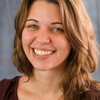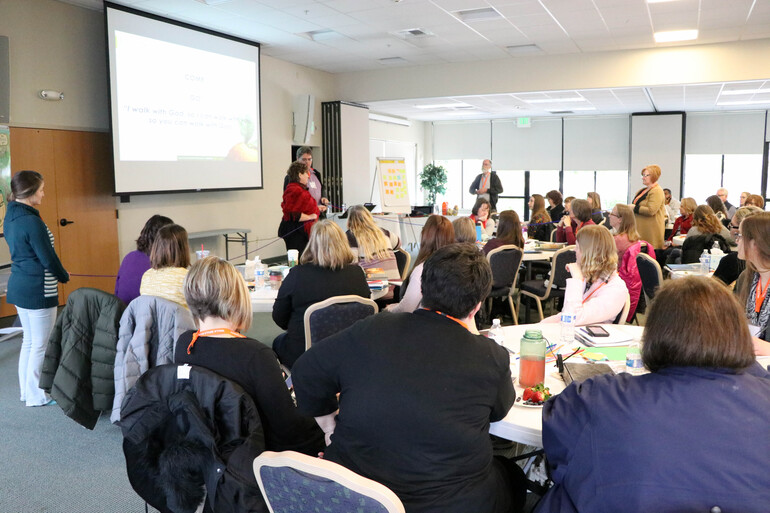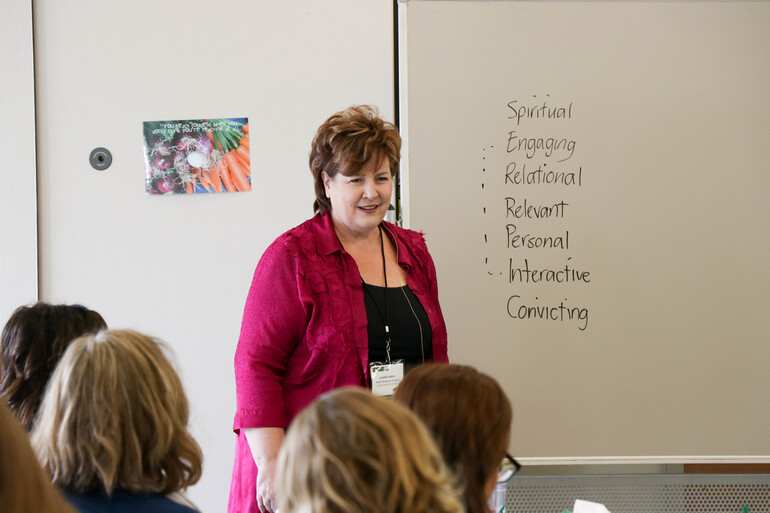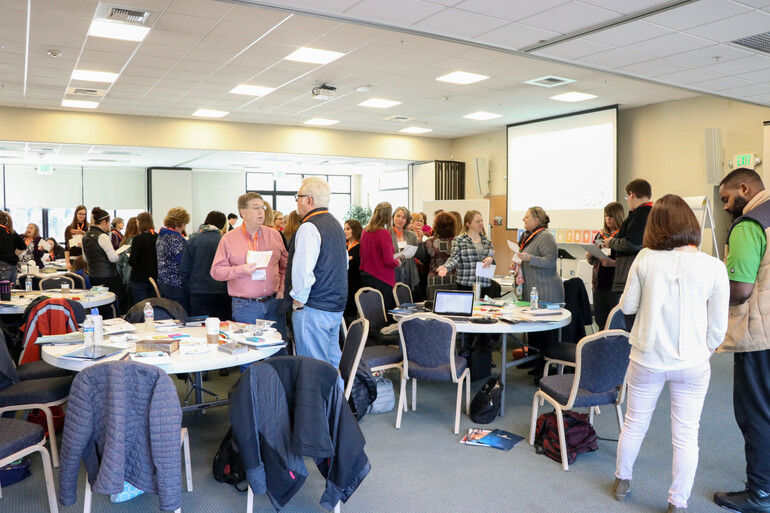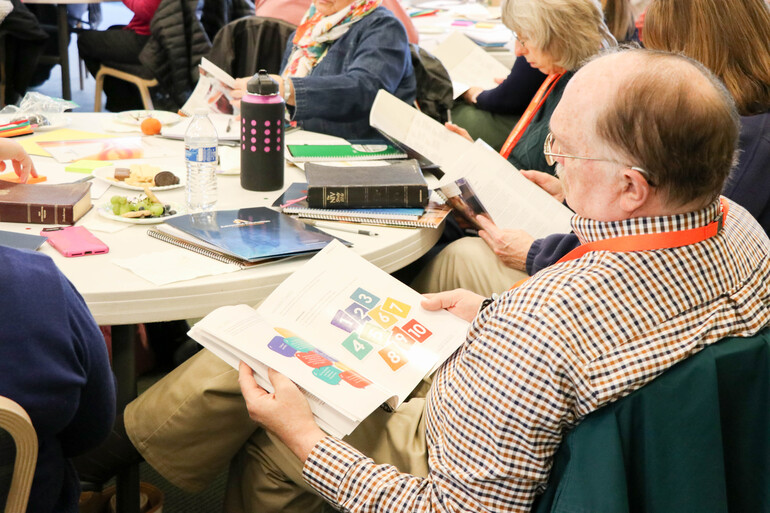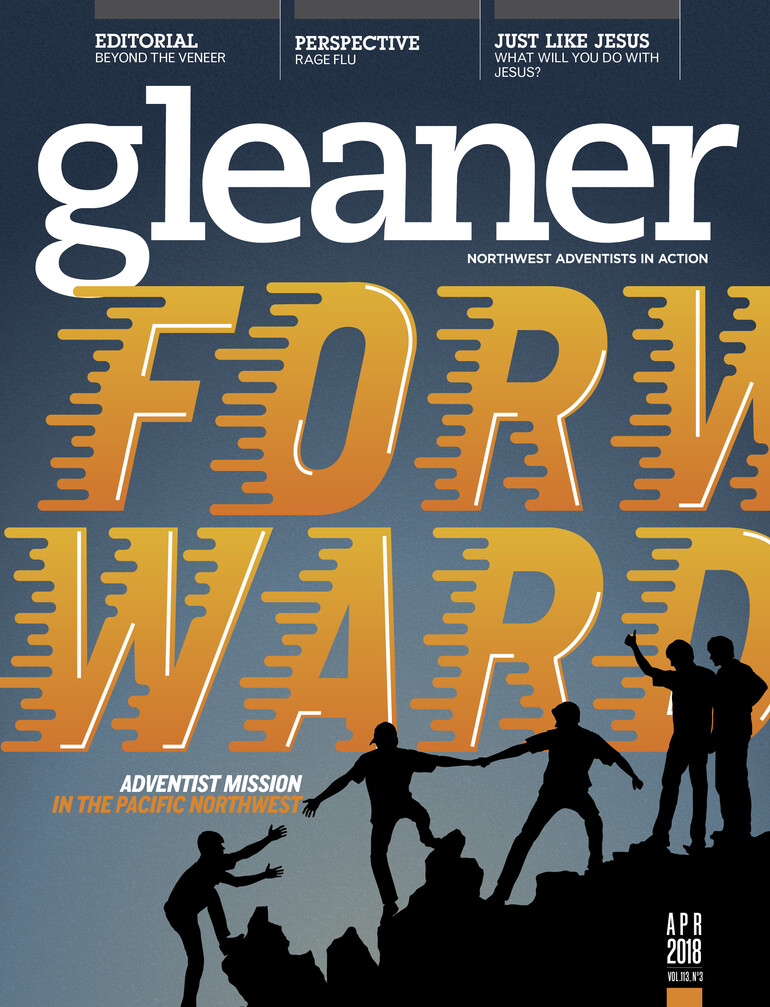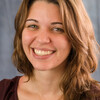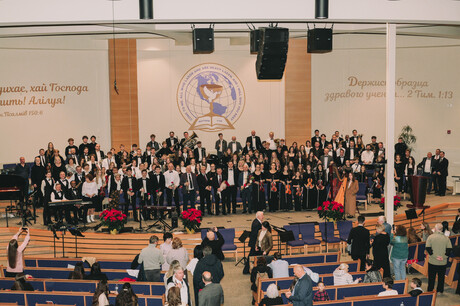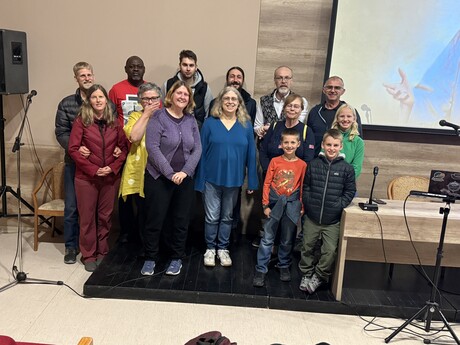The primary writer of a new Bible curriculum came to Washington in February for a two-day learning session with Washington Conference educators.
Curriculum developer Lanelle Cobbin spent the last 11 years researching and creating Encounter, a discipleship-based approach to growing the faith of children from kindergarten to grade 12.
The curriculum — initially tested in Australia and New Zealand before coming to the United States — guides students through a series of interactive learning phases in which students learn to use their Bibles as a foundation to know about God’s plan for their lives.
“Diving into the world of Jesus helps us understand the Word of Jesus,” Cobbin shared with Washington Conference teachers.
The Bible-focused curriculum takes into consideration the way students think and learn today and is primarily activity-based. The curriculum also integrates nine types of learning for all types of learners: verbal, logical, visual, kinesthetic, musical, interpersonal, intrapersonal, natural and spiritual. Furthermore, the curriculum includes Adventist history sections and connects fundamental beliefs to the lessons.
“It’s more experiential,” says Becky Meharry, Washington Conference associate superintendent and member of the North American Division’s Encounter steering committee. “Instead of kids knowing the Bible for facts, it’s kids experiencing the Bible. The new curriculum is about intentionally inviting students to accept Jesus in a developmental way.”
“I’m excited because for a long time I’ve wanted a more hands-on, tactile approach for sensory learners, and so I’m looking through these samples with excitement,” says Melissa Hammond, teacher at Shelton (Wash.) Valley Christian School. “It adds a dimension of fun that we don’t have in our Bible curriculum right now, and if we’re going to attract kids to the love of God it needs to be engaging.”
The new Bible curriculum employs a significant paradigm shift in both teaching and learning and embeds the latest pedagogy in brain-based learning. The teacher in-service reviewed the different methods of learning and provided techniques to help teachers give students time to process what they’ve learned instead of immediately moving on to the next topic of learning.
“The teachers' in-service is a spiritual experience, not just about learning new techniques,” says Meharry. “I hope teachers are inspired to connect with their kids and come back revitalized to take on the challenge.”
Explore the Encounter curriculum at www.encounter.adventisteducation.org.



